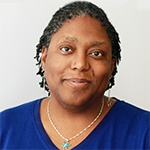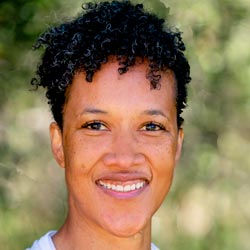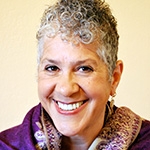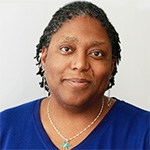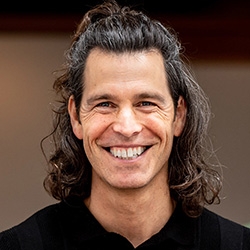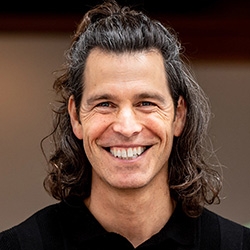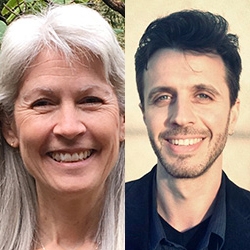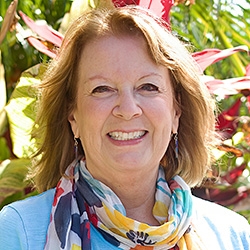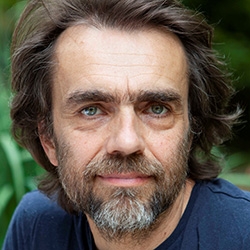
Search Results: history
-
Amidst racial violence, there are things that NVC can offer. And there are places where NVC culture needs to be more vigilant. Here are examples of where, amidst incredible loss and pain, "allies" and communities commonly (and often unknowingly) create false equivalences, minimization and re-injure those who've been historically marginalized -- even when they offer empathy, or aim to stay "safe". Read on to cultivate greater understanding and ways to respond differently.
-
Hi friends, My name is Itzel and I’m happy for this opportunity to share a bit about myself and how I came to teach NVC. I was an activist before I knew what the word meant. When I was a child, I often argued with the adults around me about what I thought was “right.” If I had a nickel for every time a grown-up said to me, “You should be a lawyer,” I probably would’ve collected enough money to pay for the law school education that I eventually got. I left my traditional legal career path after more than a decade to become a...
-
Working on social justice and racial equity? If you include attending to white culture and privilege as part of that work, you'll reap important benefits. Understanding white culture — along with its embedded historical privileges — provides valuable insight into a larger system of inequity.
-
Want to increase diversity, plus improve group dynamics and group functioning? There are things you can do to make NVC settings more welcoming to people of color. Learn more about how to use NVC; attend to impact; help the community understand and demonstrate more awareness; factor in historical context; engage; create a more inclusive climate; and more!
-
-
Amidst the Israel/Palestine war we see polarizing media portrayals and the battle for public opinion. Read how one person shares his deep, personal connections to the Israel/Palestine conflict, expresses the trauma and viewpoints of both Palestinian and Israeli experiences -- in a way that aims to transcend polarizations, hold compassion, and understand the complexity on both sides. Despite the immense challenge that defies easy resolution, he holds hope, noting historical reconciliations such as the ones between Germans and Jews.
-
Amidst the Israel/Palestine war we see polarizing media portrayals and the battle for public opinion. Read how one person shares his deep, personal connections to the Israel/Palestine conflict, expresses the trauma and viewpoints of both Palestinian and Israeli experiences -- in a way that aims to transcend polarizations, hold compassion, and understand the complexity on both sides. Despite the immense challenge that defies easy resolution, he holds hope, noting historical reconciliations such as the ones between Germans and Jews.
-
This 4 session telecourse recording offers practices while exploring the relationship between the core elements of NVC and universal spiritual principles.
-
The human brain is a conservative organ that comprises different systems with varying degrees of conscious awareness, which evolved in three basic stages of human history (the lizard-squirrel-monkey brain.) In my understanding, we could say, the brain has strong needs for understanding, order, predictability and meaning. In fact, one of its key functions is to process experiences, and predict what the world is like, in order to maximize survival. CNVC Certified Trainer Stephanie Bachmann Mattei explores the biological basis of our inner jackal voices.
-
Join LoraKim Joyner to investigate how merging science, the social and emotional intelligence of humans, animals and other species and Nonviolent Communication can bring a greater sense of belonging and wholeness to your life, and care and justice to the lives of others.
-
Asking for help is difficult for many of us, but can yield rich rewards.
-
Grieving reminds us of the preciousness of life, it helps us integrate loss, and it opens us to deeper compassion, inspiration, and joy. We need to create space in our lives to grieve fully.
-
In this book excerpt, Kathleen and Jared offer a path to reach deeper clarity, distinguishing between universal needs and strategies.
-
Trainer Tip: We all want to be valued in our totality, to be loved even when we make mistakes. Wouldn’t we also like to offer this to ourselves? Compassion is about seeing the humanness in everyone, including ourselves. One way to express compassion is to remember your entire relationship and history of love with someone as a whole, rather than focusing on one disappointing incident.
-
- Find intuitive guidance for bridging divides
- Connect to deep needs that have been habitually ignored
- Discharge the anxiety held in old, embodied reactions
- Make decisions and take actions that align with your values
- Cultivate resources for more enjoyably and more capably building relationships
-
“Nonviolence” is not just a political tactic. It is a “soul force,” a courageous and compassionate stand in the face of what seems to us unjustly unequal, oppressive, and violent. It is the force of love meeting and transforming what appears to not be love.. It is the force of love meeting and transforming what appears to not be love. It is speaking and listening with courage, compassion, and an open heart and mind and rooted in our truth in a way that bridges understanding. And doing so without demand nor trying to convince -- all in the face of any anger, fear, oppression, inequality, violence or disagreement.
-
- Discover what is yours to do in response to our global crises
- Weave nonviolence more deeply into how you live and lead
- Receive ongoing support in how to be effective and alive while pursuing your highest goals
- Increase your capacity to face and mourn current reality as a source of greater choice and energy
- Be a part of transforming the legacy of scarcity, separation, and powerlessness into a livable future
-
NVC is a process. It’s the willingness and effort to empathize with both sides of a conflict, encouraging each side to empathize with the other, and then seeing what solution can arise, working together to meet the needs of both sides. Empathy is the experience of being not separate as well as being an individual. It's seeing we're all part of the one ever-flowing consciousness of being, all unique expressions of this unity.
-
No one on their deathbed wished they worked more. Working is unlikely to bring a meaningful life. And yet greeting friends with survivalist expressions, such as, "I'm dead-tired", can feel like affirming our own worth. Taking time off can bring inner spaciousness, ease, rest and consequently time to meet life, to really meet it. Which brings more clarity into the question of what we would like to celebrate on our deathbed.
-
I’ve been part of a fitness group here in California for the past 1.5 years. It’s called Boot Camp, and I have no idea why! Anyway, most people in the class are 25-30 years younger than I am and have been part of this group for several years. I don’t lift weights as heavy as theirs and I can’t always keep up with them, but I had felt confident that I was holding my own (except when jogging, which is the one place where I consistently lag far behind them). I found a way to be okay with this, to enjoy working out with them, without thinking I should be as strong or skilled as they are.

